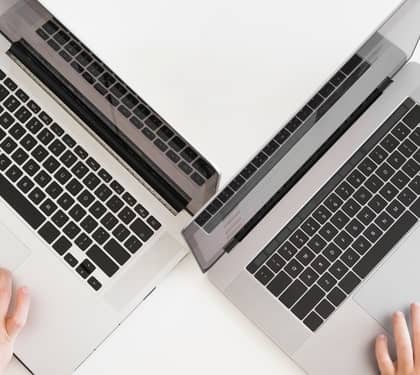In today’s fast-paced tech world, buying a brand-new laptop isn’t the only way to get a reliable and efficient device. Opting for a used, pre-owned, or pre-loved laptop is a smart and cost-effective alternative that meets your computing needs without breaking the bank. However, purchasing a used laptop requires thoughtful consideration to ensure you make the right choice. Here are five essential tips to help you confidently navigate the process.
- Understand Your Requirements
Before diving into the world of used laptops, it’s crucial to clearly define what you need from a laptop. Consider the following:
Purpose: Are you looking for a used laptop for casual browsing, gaming, professional work, or multimedia editing?
Specifications: Determine the minimum specifications you need, such as processor speed, RAM, storage capacity, and graphics capabilities.

By knowing your requirements, you can narrow down your options and avoid overspending on unnecessary features.
- Research Thoroughly
Once you know what you need, spend some time researching the available models and their market prices. Here’s how you can do it:
Read Reviews: Look for reviews and user feedback on the models you're interested in to understand their performance and common issues.
Compare Prices: Check multiple platforms like Noon and Amazon to get a sense of the fair market value.

Thorough research will help you make an informed decision and avoid overpaying.
- Inspect the Physical Condition
If possible, physically inspect the used laptop before purchasing it. Here’s what to look for:
Exterior: Check for any physical damage, such as cracks, dents, or significant scratches.
Screen: Ensure the screen is free of dead pixels, scratches, or discoloration.
Keyboard and Trackpad: Test all keys and the trackpad to ensure they are fully functional.
Ports: Test all ports (USB, HDMI, etc.) to make sure they work properly.

A careful physical inspection can reveal potential problems that might not be immediately obvious.
- Verify Battery Health
Battery health is a crucial factor in the performance of a used laptop. Here’s how to check it:
Ask the Seller: Inquire about the battery life and how often the laptop has been used on battery power.
Battery Health Check: If possible, use built-in tools to check battery health. For example, macOS has a System Information feature, and Windows users can generate a battery report using the command prompt.

Knowing the battery health can help you anticipate potential additional costs for battery replacement.
- Buy from Reputable Sources
To ensure a safe and secure purchase, buy a used laptop from reputable sources:
Trusted Sellers: Look for sellers with good feedback ratings and positive reviews.

Purchasing a used laptop from a trusted source reduces the risk of encountering fraudulent sellers or defective products.
Many people get tempted by low prices on used laptops, only to end up with hidden issues and no support. At Laptop Mart, we believe buying a used laptop should feel just as secure as buying new. That’s why we offer great value without cutting corners—quality machines, fair pricing, warranty, and after-sales support all included. It’s not just about affordability, it’s about peace of mind.
Final Thoughts
Choosing a used, pre-owned, or second-hand laptop can be a smart and budget-friendly decision when done right. By identifying your needs, conducting thorough research, inspecting the laptop's condition, checking battery health, and purchasing from trusted sources, you can secure a reliable device at a great value.
Ready to find the perfect laptop? Explore our collection of pre-loved laptops online or visit our store to check out the available options. Happy shopping!




